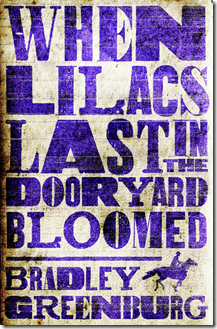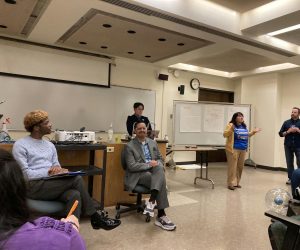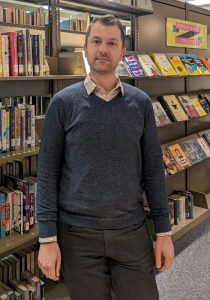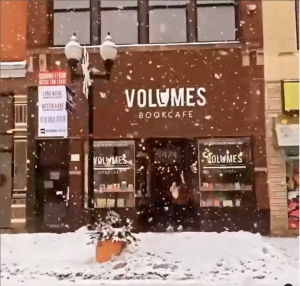Review: “When Lilacs Last in the Dooryard Bloomed”
“Lilacs” Lasts in the Heart and Mind
September 23, 2014
“When Lilacs Last in the Dooryard Bloomed” is the new novel by English professor Bradley Greenburg. History is romanticized while criticized. The book is packed with action, but those actions have consequences and death matters.
Recently emancipated slave Clayton McGhee and his family move up North to escape the malevolent South, but it turns out the North isn’t the land of milk and honey they had expected. After purchasing a farm in Lafayette, Indiana, the McGhees can’t seem to find peace, learning that emancipation cannot simply be proclaimed with legislation, but with blood, sweat and tears.
The book is split into two sections. The second half of the book takes place 30 years later. As characters are reintroduced, having aged considerably, it’s like seeing old friends—friends like Cmicky, the endearing red-headed Polack you’d hoped you would get to see again, or June, the kind of friend you could go another 30 years without seeing. And those that don’t survive the 30 year gap haunt the remaining pages, demonstrating the impact of generations passed, for better or worse.
New characters introduced take center-stage. Henderson Jeffries finds himself in a spiritual battle between his father Peter, a white-supremacist lawyer greedy for fortune, and his mother Anabelle, a poetry-chanting flower-child.

In this book, voices that so-often go unheard are given perspective and depth. Rarely are readers given insight into the hearts and minds of stereotypical archetypes like the ethnic child sidekick in adventure stories like Xury in “Robinson Crusoe” or Short Round in “Indiana Jones and the Temple of Doom.” This idea is pondered upon by the book’s hero, Clayton, who finds himself identifying more with the ethnic child sidekick than with their prominent white counter-parts.
This is the advantage of period-piece writing. Unlike “Huckleberry Finn,” a book often criticized for racial insensitivity, in “When Lilacs Last in the Dooryard Bloomed”, society of the time can be experienced with sensitivity and underrepresented perspective—hindsight is 20/20.
While there is no romance for prejudice and violence, there is a thread of nostalgia that runs throughout the book. The book contains many passages waxing poetry about quality craftsmanship. The son of a skilled carpenter, Clayton holds contempt for the increasingly industrial world he finds himself in. In one scene, two characters discuss the invasive nature of the newly invented telephone. (Hang on. I’m getting a text.)
The book is filled with many sidebar passages that take the time, however little, to humanize and centralize tertiary characters. These passages take the form of humorous anecdotes, insightful musings and pearls of wisdom. Such passages are in no way a distraction, but instead, are some of the most delightful parts of the book.
The writing is crisp and easy to read. When metaphors and similes are used, they are apt, truthful and often funny. The different vernaculars used in dialogue adds character without being too cumbersome. And the action is well detailed and easy to follow.
I rarely found myself rereading passages to understand what I’d just read (something I am a chronic sufferer of). The book has a nice balance between passages that are simply stated with concrete imagery and detail, and other passages, particularly the violent ones, containing elements of poetry to create descriptions that are ambiguous at first, but become abundantly clear by the end and ultimately more powerful.
As Johnny Cash puts it, “I don’t like it but I guess things happen that way.” When bad-fortune befalls beloved characters, you suddenly hope you’re reading science fiction, where tragedy can be miraculously reversed with a time-machine or a tear in the space-time-continuum. Or when justice strikes those that deserve it, you think to yourself,“it didn’t have to be this way.” But that’s life—the ache of tragedy is confronted and then life goes on.







